27 July 1778 Monday
. . . . . .
Artifacts of the Bianconi vs Piranesi 'Circus of Caracalla' affair 1772-1789
Giovanni Lodovico Bianconi's "Elogio Storico del Cavaliere Giovanni Battista Piranesi Celebre Antiquario ed Incisore de Roma" (1779)
paragraph fourteen
The enterprise which more than any other had recently occupied Piranesi was the immense Villa Tiburtina of the Emperor Hadrian, an incomparable monument of all that was most beautiful in antiquity, if the years and barbarism had not destroyed it. By dint of diligence and effort he had discovered the general plan, and copied those few vestiges that can be seen there, after the rest has served to decorate our modern buildings. It is claimed that such an arduous work hastened his death, and God grant that there are as many drawings left as are enough for such an interesting work to be published. Adriano, in addition to being a singular genius in the government of the Roman Empire, was an excellent architect, painter, sculptor, musician, etc.; and it is in this villa that he wanted to leave the memory of many of his studies. Who knows if the architecture was not his work, and if among the statues that are now found there aren't any still by his hand? What is certain is that Aurelius Victor tells us that Hadrian did not give it to the most illustrious sculptors of Greece.
"It is claimed that such an arduous work [at Hadrian's Villa] hastened [Piranesi's] death" is an ambiguously provocative statement coming Bianconi. Given that Bianconi was a doctor himself, it's difficult to discern whether Bianconi is telling us all he knew, or whether he's not telling us all he knew, about Piranesi's health. Perhaps the most unassuming explanation is that early on, circa 1765-75, Bianconi was doctor to Piranesi, but later on, circa 1775-77, Bianconi was not doctor to Piranesi. Whatever the case, it seems clear that Piranesi spent a lot of time doing field work at Hadrian's Villa during the better part of the last decade of his life.
46 y.o. Francesco Piranesi 1804
Le AntichitÓ della Magna Grecia Parte I
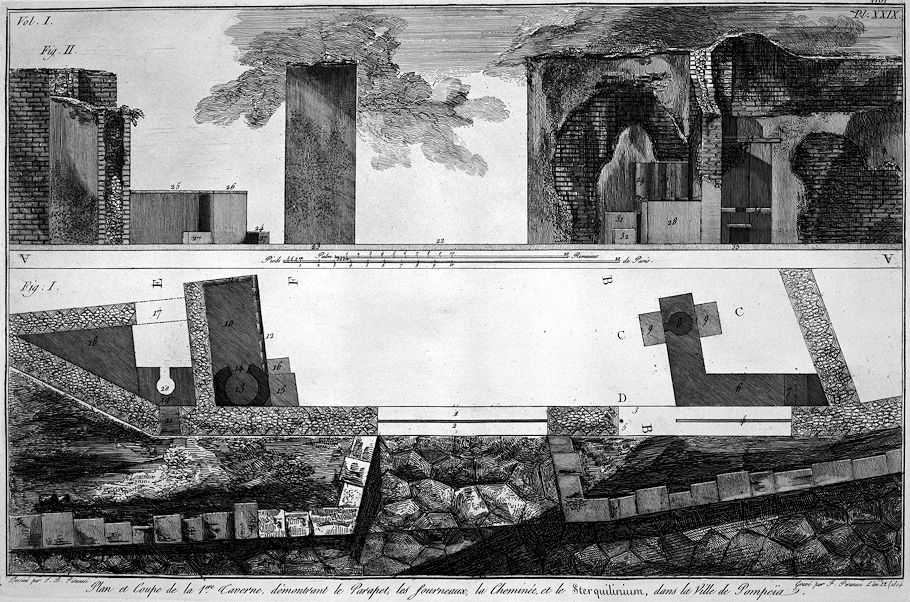
Plan and Section of the 1st Tavern, showing the Parapet, Furnaces, Chimney, and Sterquilinium, in the City of Pompeii.
Drawn by G.B. Piranesi
Engraved by F. Piranesi Year 12 (1804)
27 July 1812 Monday
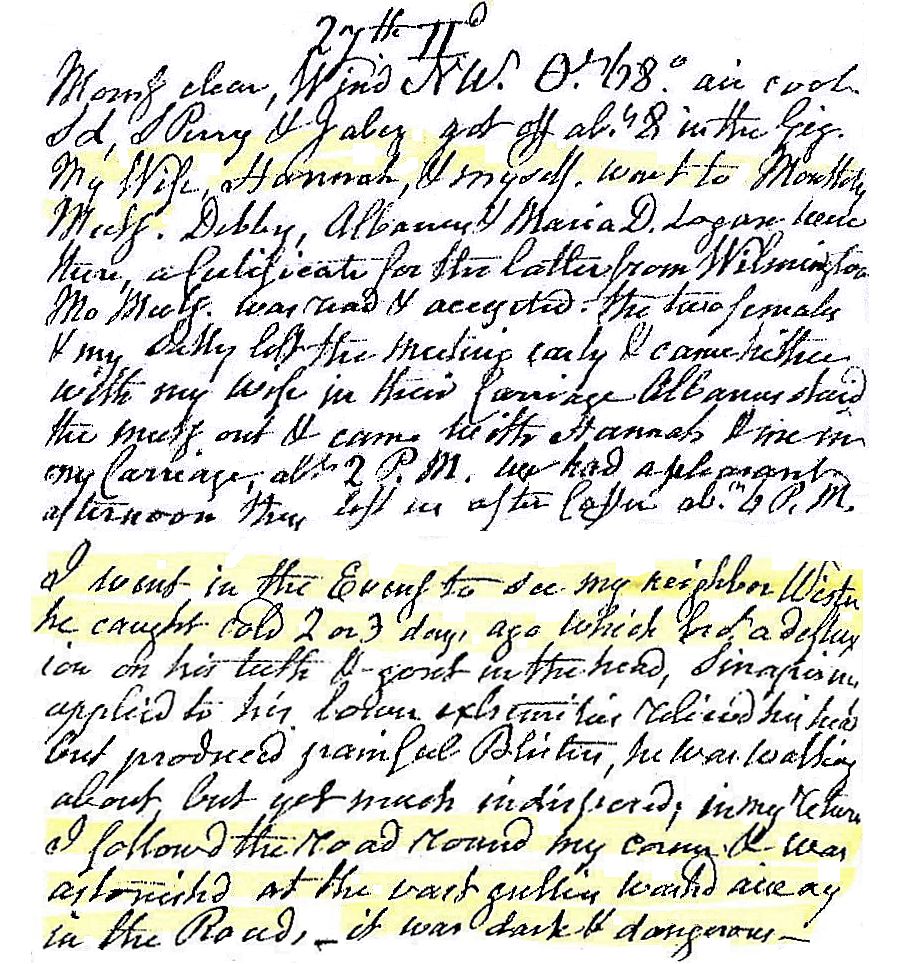
Morning clear, wind NW, temperature 68░, air cool. SL, J Perry and Jabez got off about 8 in the gig. My wife, Hannah and myself went to monthly Meeting. Debby, Albanus and Maria D. Logan were there. A certificate for the latter from Wilmington Monthly Meeting was read and accepted. The two females and my Sally left the Meeting early and came hither with my wife in their carriage. Albanus stayed the Meeting out and came with Hannah and me in my carriage. About 2 P.M. we had a pleasant afternoon. They left us after coffee about 6 P.M. I went in the evening to see my neighbor Wister. He caught clod 2 or 3 days ago which brought a deflection on his teeth and gont[?] in the head. Sinapism applied to his lower extremities relieved his head but produced painful blisters. He was walking about but yet much indisposed. In my return I followed the road round my corner and vast astonished at the vast gullies washed away in the road--it was dark and dangerous.
27 July 1999
Constantine's Jubilee
As I already noted, it was yesterday that I noticed a series of coincidences centering around the sudden "appearance" of Athanasius. I did not realize until today, however, that 25 July is the date of Constantine's Jubilee, and it was on 26 July 1999 that I borrowed the book entitled Orations in Praise of Constantine. Not only is it interesting that I found myself the day after Constantine's Jubilee reading about a speech written and delivered by Eusebius, but the very speech that I was reading about was first delivered in Constantinople 25 July 336, in honor of Constantine's thirty year reign as Emperor.
Even though I see myself giving full attention to Helena, it's funny how Constantine somehow manages to make me think more than twice about him as well.
27 July 2003
Re: designing GOP rhetoric
It seems that there is not much more than one degree of separation between
"if one questions the administration's policies one "gives ammunition to America's enemies, and pause to America's friends.""
and a law of silence.
Fortunately, the US Constitution [written and signed in Philadelphia] legally grants freedom of speech, which, one could say, is the exact legal opposite of a legalized silencing.
It appears that the punishment for breaking a law of silence, at least in late-antiquity/imperial times, was extreme exile, but not capital punishment. Or perhaps the punishment was somewhat tailored to match the status of the silence breaker.
St. Ambrose, in the late 300s, broke a silence and he succeeded in not being punished for it.
Eustathius, bishop of Antioch, (appears to have) broke a law of silence, and he thus lost his high position. Here's (some of) what I wrote at the late antiquity list 18 August 2001:
"Last night, in reviewing the case of the 'downfall' of Eustathius, bishop of Antioch, and it's seeming connection to his having said something about Helena, it is mentioned that Eustathius was anti-Arian while Helena seems to have been pro-Arian, and thus maybe Eustathius said something along these lines. The fall of Eustathius occurred sometime 326-328, and is one of the factors that leads modern scholars to believe that Helena was in the Holy Land/East during that period. I think that Eustathius did fall because he said something about Helena, but that his real crime was that he said something about Helena after her death in Rome July 326. In other words, Eustathius broke the 'silence' regarding Helena and the Cross that was somehow enforced by Constantine, and Eustathius' losing his see is a clear example to those living then under Constantine of what will happen to you if you too break the 'silence'. Interestingly, it is Athanasius [twice disputed bishop] of Alexandria that first tells us of the Eustathius/Helena connection, and he was also a supporter of Eustathius. Athanasius was exiled to Trier (where he might not be heard so well?) during the latter years of Constantine's life."
Pope Saint Martin I (the first) would not sign (in the 650s) the "Typus" [aka the TYPE, a law of silence forbidding any further discussion of Monothelitism].
an excerpt from the Catholic Encyclopedia online:
Upon his arrival in Constantinople Martin was left for several hours on deck exposed to the jests and insults of a curious crowd of spectators. Towards evening he was brought to a prison called Prandearia and kept in close and cruel confinement for ninety-three days, suffering from hunger, cold and thirst. All this did not break his energy and on 19 December he was brought before the assembled senate where the imperial treasurer acted as judge. Various political charges were made, but the true and only charge was the pope's refusal to sign the "Typus". He was then carried to an open space in full view of the emperor and of a large crowd of people. These were asked to pass anathema upon the pope to which but few responded. Numberless indignities were heaped upon him, he was stripped of nearly all his clothing, loaded with chains, dragged through the streets of the city and then again thrown into the prison of Diomede, where he remained for eighty five days. Perhaps influenced by the death of Paul, Patriarch of Constantinople, Constans did not sentence the pope to death, but to exile. He was put on board a ship, 26 March, 654 (655) and arrived at his destination on 15 May. Cherson was at the time suffering from a great famine. The venerable pontiff here passed the remaining days of his life. He was buried in the church of Our Lady, called BlachdernŠ, near Cherson, and many miracles are related as wrought by St Martin in life and after death. The greater part of his relics are said to have been transferred to Rome, where they repose in the church of San Martino ai Monti. Of his letters seventeen are extant in P.L., LXXXVII, 119.
27 July 2006
 fetching Ruff Ruff stuff? 002
fetching Ruff Ruff stuff? 002
27 July 2016
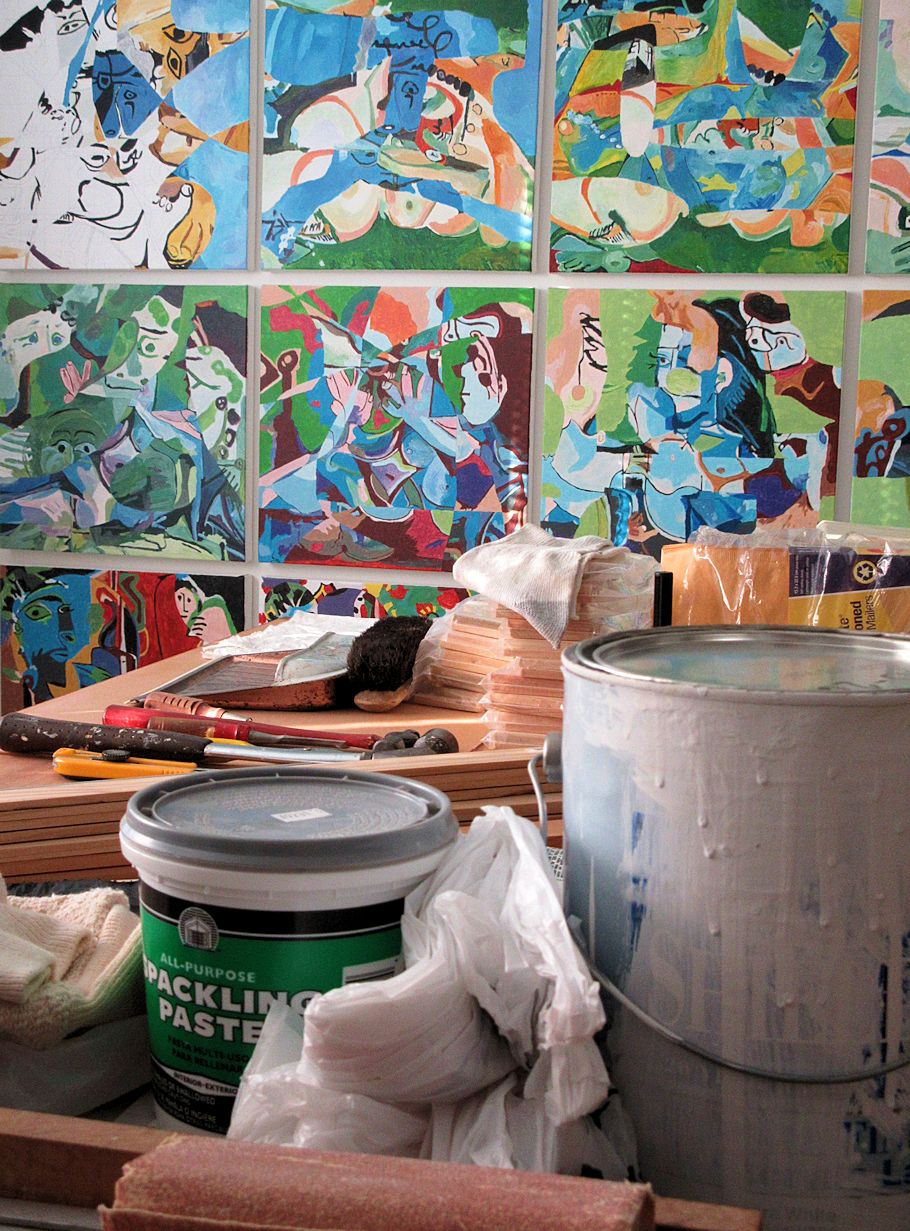
slow at CAD
It was July 9th, Saturday night. I was drawing while relaxing in the pool. A deer jumped over the fence, and the laptop fell in the water. I quick took a picture.
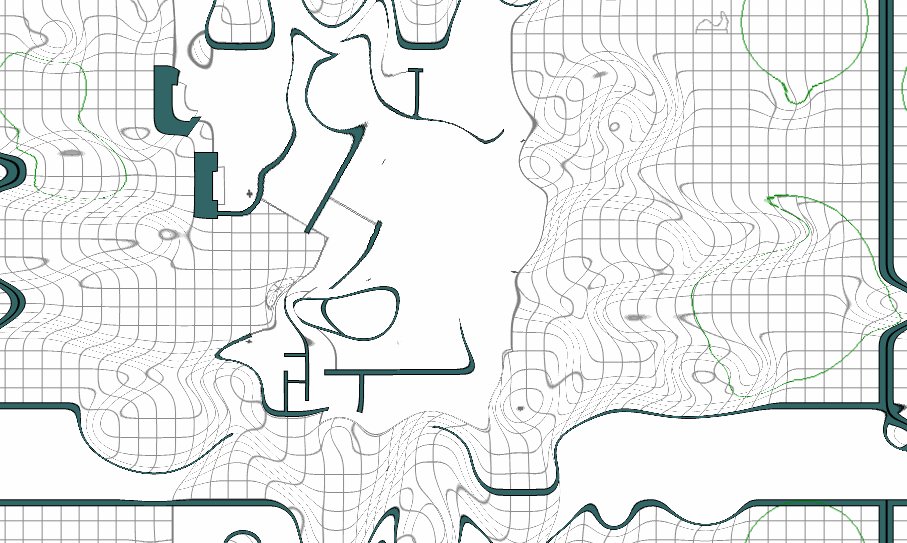
27 July 2017
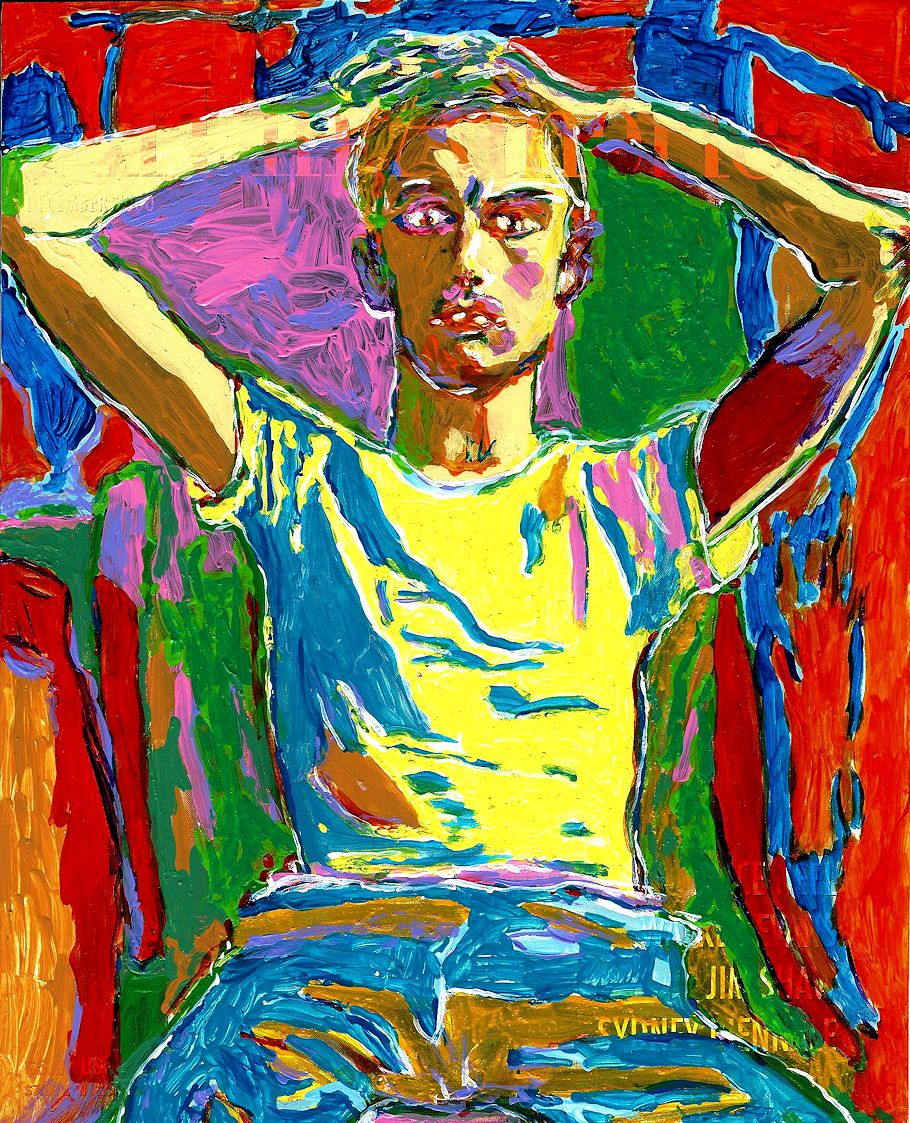 zero six six
zero six six
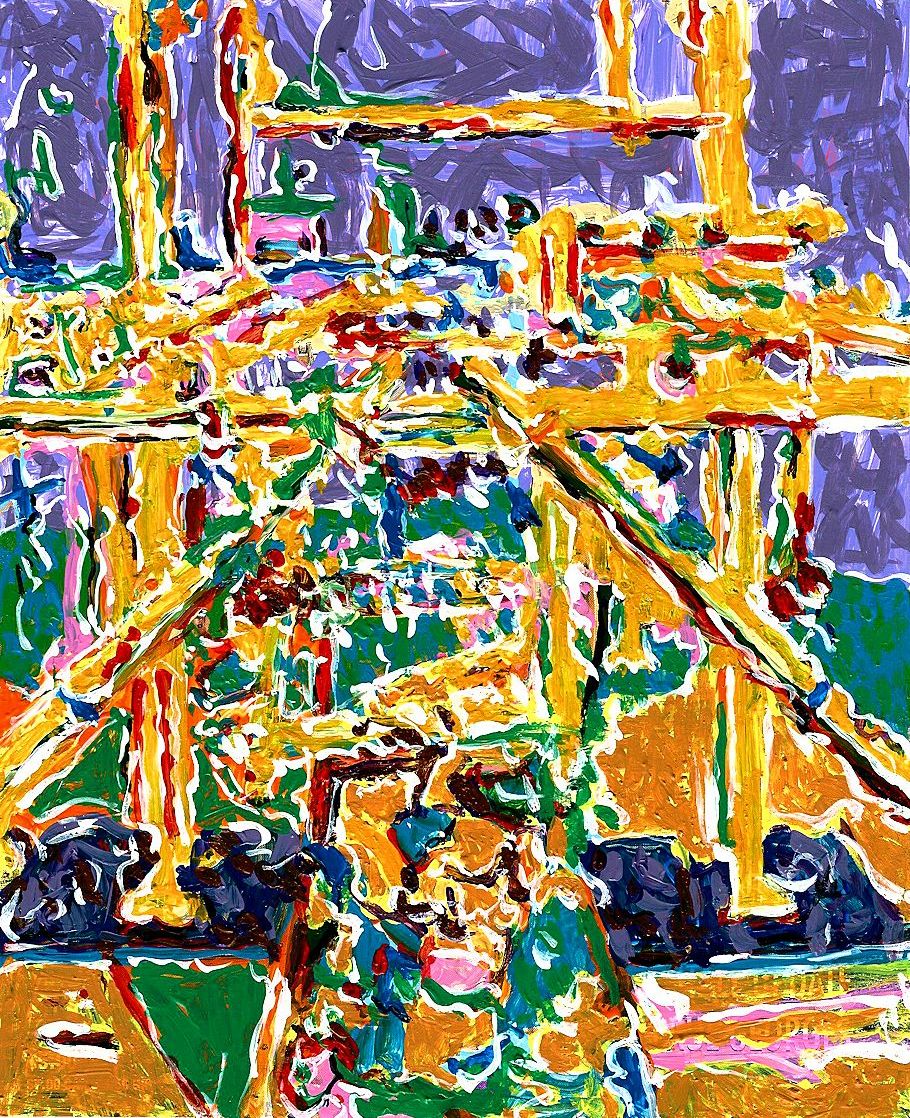 zero six seven
zero six seven
27 July 2023 Thursday
. . . . . .
|